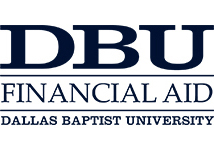Self-Help Aid
This area covers loans (federal, state, and private educational lenders), 529 plans, and Employment/Self Pay options as a means to pay for educational expenses.
Loans are offered by federal and state governments, as well as private lenders. Loans help cover a student’s educational and educationally related expenses. The student must repay the student’s loans with interest, but loans can provide students and families with immediate access to funds to help cover the cost of college.
Federal Loans
Primarily the Federal Government provides loans to undergraduate, graduate, and professional students as:
- Subsidized Direct Loans – Student loans available for students who have demonstrated financial need. The government through the US Department of Education pays the student’s interest while the student is in school, and for a six-month grace period after the student graduates (at which time payments on the borrowed funds are expected to begin).
- Unsubsidized Direct Loans – Unsubsidized loans are available to students regardless of financial need. Students are responsible for repaying interest during all periods. While many students received both a subsidized and unsubsidized loan in two pre-determined amounts, some students only qualify for the unsubsidized direct loan.
- Learn about the Difference Between a Subsidized and an Unsubsidized Loan >>
If more funds than the subsidized and unsubsidized loans provide are needed, there are federal loans for parents and graduate/professional students (PLUS Loans). Visit the Federal Student Aid Loan page for more detailed information on the above loan options.
Alternative Private Loans
In addition to federal loan funds available to students and parents, some alternative private lenders provide funds for educational purposes.
- Learn about the difference between a Private Loan and a Federal Direct Subsidized/Unsubsidized Loan >>
- Research Alternative Lenders >>
Educational Investment Plans / Employment/Corporate Education / Third-Party Billing / Self Pay
- Educational Investment/529 Plans – 529’s are state-sponsored investment plans–officially called Qualified Tuition Programs (QTP)–that help families save money for college. These plans may have tax benefits, so the student’s savings can grow faster. All programs provide funds that can be used for educational expenses. These plans are not added to an award letter. Speak to our cashier office about how to set up billing for these programs.
- The Cashier’s Office has a variety of payment options for corporate education students as well as those who receive payment for their tuition from a third-party company, organization, or tuition program.

